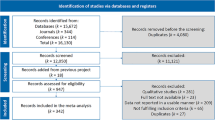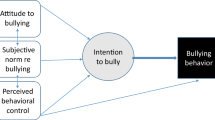Abstract
Most educational scholars agree that appropriate supervision of children is critical for positive youth development. Supervision is especially important during situations where children have a large degree of freedom and unstructured interaction, such as during recess. Despite the apparent importance of supervision of children at recess, there is little published research on the training of yard supervisors. The goal of the present study was to conduct a needs assessment and develop a customized training for yard supervisors at a public elementary school in an effort to help yard supervisors respond more effectively to student conflicts and promote a positive school climate. Needs assessment data used to inform the yard supervisor training were gathered through two methods: (a) playground observations of yard supervisor and student behavior and (b) yard supervisor interviews and student focus groups. Results of the needs assessment, and a description of the yard supervisor training developed from these findings, are presented, with particular emphasis placed on the implications of the study for practicing school psychologists.
Similar content being viewed by others
References
Bandura, A. (1965). Influence of models' reinforcement contingencies on the acquisition of imitative responses. Journal of Personality and Social Psychology, 1(6), 589–595. doi:10.1037/h0022070.
Bloom, B. S. (1976). Human characteristics and school learning. New York: McGraw-Hill.
Blum, R. W., & Libbey, H. P. (2004). Executive summary: wingspread declaration on school connections. Journal of School Health, 74, 231–234. doi:10.1111/j.17461561.2004.tb08278.x.
Cheng, Y.-Y., Chen, L.-M., Ho, H.-C., & Cheng, L. (2011). Definition of school bullying in Taiwan: a comparison of multiple perspectives. School Psychology International, 32, 227–243. doi:10.1177/0143034311404130.
Deci, E. L., Koestner, R., & Ryan, R. M. (1999). A meta-analytic review of experiments examining the effects of extrinsic rewards on intrinsic motivation. Psychological Bulletin, 125, 627–668. doi:10.1037/0033-2909.125.6.627.
Finn, J. D., & Rock, D. A. (1997). Academic success among students at risk for school failure. Journal of Applied Psychology, 82, 221–234. doi:10.1037/0021-9010.82.2.221.
Gable, R. A., Hester, P. H., Rock, M. L., & Hughes, K. G. (2009). Back to basics: rules, praise, ignoring, and reprimands revisited. Intervention in School and Clinic, 44, 195–205. doi:10.1177/1053451208328831.
Hendricks, C. M. (1993). Safer playgrounds for young children. ERIC Clearinghouse on Teacher Education. Washington DC. Retrieved on August 23, 2013 from http://files.eric.ed.gov/fulltext/ED355206.pdf.
Hill, C. E., Thompson, B. J., & Williams, E. N. (1997). A guide to conducting consensual qualitative research. The Counseling Psychologist, 25, 517–572. doi:10.1177/0011000097254001.
Hughes, J., & Kwok, O. (2007). Influence of student-teacher and parent-teacher relationships on lower achieving readers’ engagement and achievement in the primary grades. Journal of Educational Psychology, 99, 39–51. doi:10.1037/0022-0663.99.1.39.
Hughes, P. P., Middleton, K. M., & Marshall, D. D. (2009). Students’ perceptions of bullying in Oklahoma public schools. Journal of School Violence, 8, 216–232. doi:10.1080/15388220902910656.
Jarvis, P. (2007). Dangerous activities within an invisible playground: a study of emergent male football play and teachers’ perspectives of outdoor free play in the early years of primary school. International Journal of Early Years, 15(3), 37–41. doi:10.1080/09669760701516918.
Johansen, A., Little, S. G., & Akin-Little, A. (2011). An examination of New Zealand teachers’ attributions and perceptions of behaviour, classroom management, and the level of formal teacher training received in behaviour management. Kairaranga, 12, 3–12.
Lewis, T. J., Colvin, G., & Sugai, G. (2000). The effects of pre-correction and active supervision on the recess behavior of elementary students. Education and Treatment of Children, 23(2), 109–121.
Madsen, K. A., Hicks, K., & Thompson, H. (2011). Physical activity and positive youth development: impact of a school-based program. Journal of School Health, 81(8), 462–470. doi:10.1111/j.1746-1561.2011.00615.x.
Patrick, H., Ryan, A. L., & Kaplan, A. (2007). Early adolescents’ perceptions of the classroom social environment, motivational beliefs, and engagement. Journal of Educational Psychology, 99, 83–98. doi:10.1037/0022-0663.99.1.83.
Pellegrini, A. D., & Bohn, C. M. (2005). The role of recess in children’s cognitive performance and school adjustment. Educational Researcher, 34(1), 13–19. doi:10.3102/0013189X034001013.
Pettit, G. S., Laird, R. D., Dodge, K. A., Bates, J. E., & Criss, M. M. (2001). Antecedents and behavior-problem outcomes of parental monitoring and psychological control in early adolescence, 72(2), 583-598. doi:10.1111/1467-8624.00298.
Piwowar, V., Thiel, F., & Ophardt, D. (2013). Training inservice teachers’ competencies in classroom management. A quasi-experimental study with teachers of secondary schools. Teaching and Teacher Education, 30, 1–12. doi:10.1016/j.tate.2012.09.007.
Sharkey, J. D., You, S., & Schnoebelen, K. J. (2008). The relationship of school assets, individual resilience, and student engagement for youth grouped by level of family functioning. Psychology in the Schools, 45, 402–418. doi:10.1002/pits.20305.
Thompson, S. (2007). Do’s and don’ts: children’s experiences of the primary school playground. Environmental Education Research, 13(4), 487–500. doi:10.1080/13504620701581588.
Tucker, C. M., Zayco, R. A., Herman, K. C., Reinke, W. M., Trujillo, M., Carraway, K., et al. (2002). Teacher and child variables as predictors of academic engagement among low-income African American children. Psychology in the Schools, 39, 477–488. doi:10.1002/pits.10038.
Vaillancourt, T., Brittain, H., Bennet, L., Arnocky, S., McDougall, P., Hymel, S., et al. (2010). Places to avoid: population-based study of student reports of unsafe and high bullying areas at school. Canadian Journal of School Psychology, 25(1), 40–54. doi:10.1177/0829573509358686.
You, S., & Sharkey, J. D. (2009). Testing a developmental-ecological model of student engagement: a multilevel latent growth curve analysis. Educational Psychology, 29(6), 659–684. doi:10.1080/01443410903206815.
Author information
Authors and Affiliations
Corresponding author
Appendices
Appendices
Appendix A


Appendix B

Rights and permissions
About this article
Cite this article
Sharkey, J.D., Hunnicutt, K.L., Mayworm, A.M. et al. Effective Yard Supervision: from Needs Assessment to Customized Training. Contemp School Psychol 18, 103–116 (2014). https://doi.org/10.1007/s40688-014-0011-0
Published:
Issue Date:
DOI: https://doi.org/10.1007/s40688-014-0011-0




